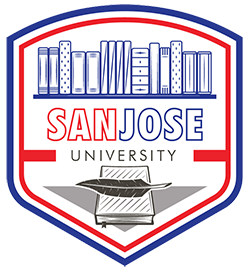Doctor of Philosophy – Ph.D.
Description of the educational program:
The Doctor of Philosophy-PhD program focuses on developing leaders who are capable of reflective decision making, working collaboratively, initiating or responding to innovative change, and who have management and administrative ability.
Program Outcomes:
By integrating academic instruction with opportunities to apply leadership theory to actual workplace problems, the program helps students to:
- Understand the relationship between theory and practice
- Understand the context in which schools, colleges, and other institutions operate
- Apply theory and contextual knowledge to educational problem solving
- Analyze ethical issues that impact business decisions from economic, political, legal, and social perspectives.
- Develop analytical and communication skills required for successful leadership
- Foster and sustain excellence
Curriculum
- Research Methodology I
- Research Methodology II
- Research Proposal
- Thesis Writing
Specializations
1. Engineering & Technology
Biotechnology, Computer Science Engineering, Electrical & Electronics Engineering, Electronics & Communication Engineering, Information Technology and Mechanical Engineering
2. Humanities
English, Political Science, Sociology, Public Administration, International Relations, Geography, History and Psychology
3. Sciences
Biotechnology, Microbiology, Chemistry, Physics, Mathematics, Agriculture Sciences, Computer Sciences, Environmental Sciences
4. Commerce & Business Management Management, Commerce
5. Journalism & Mass Communication Mass Communication
6. Law & Legal Affairs
Criminology, Civil law, Family law, International law and Human rights
7. Education
Educational Philosophy, Educational Psychology, Educational Sociology and School Administration.
8. Fine Arts
Painting and Applied Arts
Biotechnology, Computer Science Engineering, Electrical & Electronics Engineering, Electronics & Communication Engineering, Information Technology and Mechanical Engineering
2. Humanities
English, Political Science, Sociology, Public Administration, International Relations, Geography, History and Psychology
3. Sciences
Biotechnology, Microbiology, Chemistry, Physics, Mathematics, Agriculture Sciences, Computer Sciences, Environmental Sciences
4. Commerce & Business Management Management, Commerce
5. Journalism & Mass Communication Mass Communication
6. Law & Legal Affairs
Criminology, Civil law, Family law, International law and Human rights
7. Education
Educational Philosophy, Educational Psychology, Educational Sociology and School Administration.
8. Fine Arts
Painting and Applied Arts
